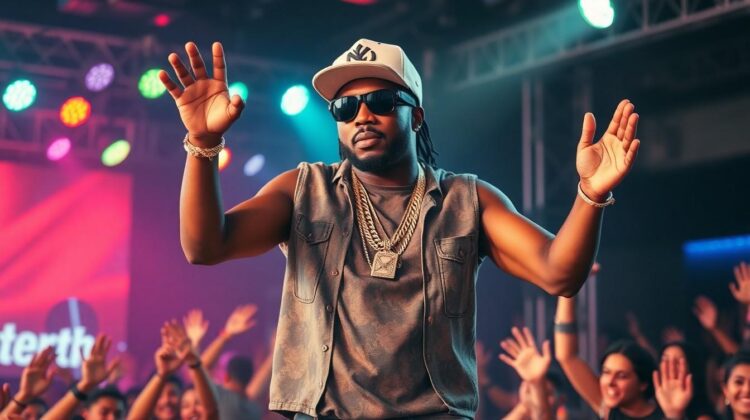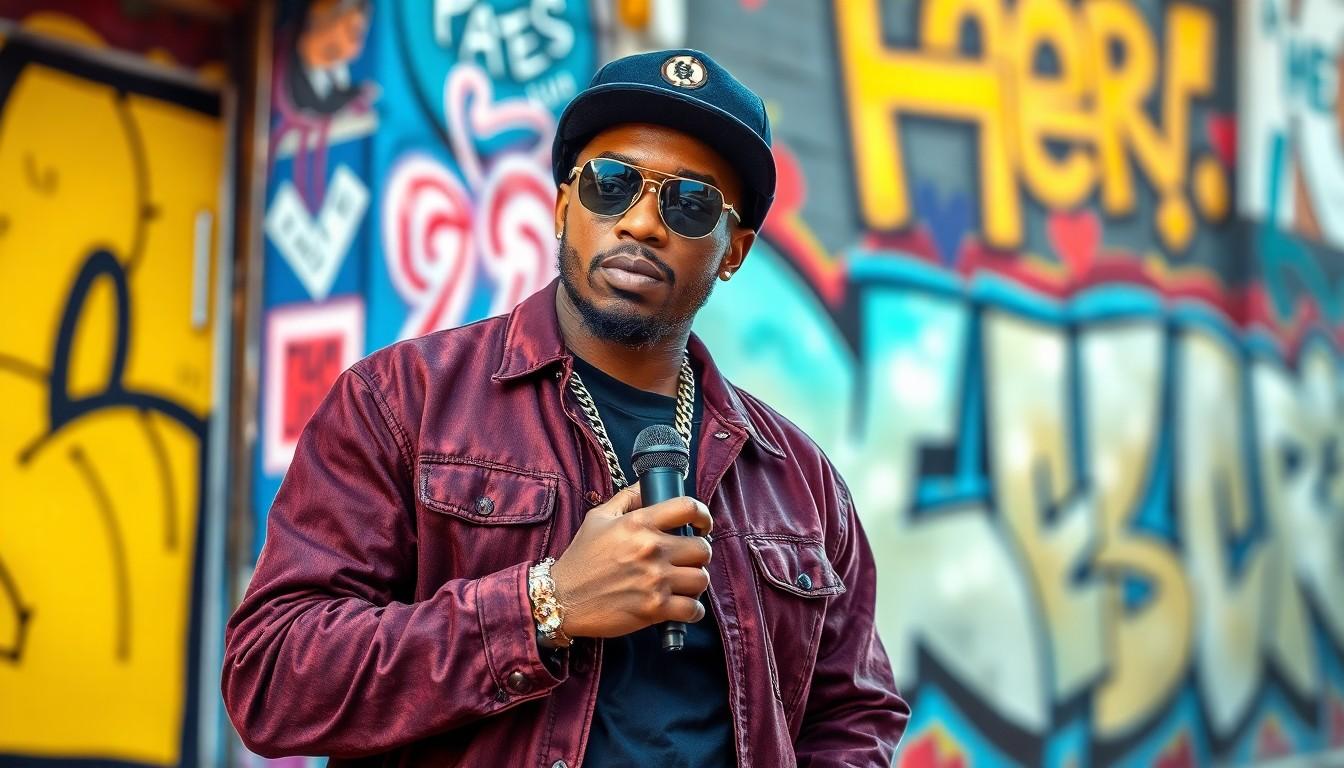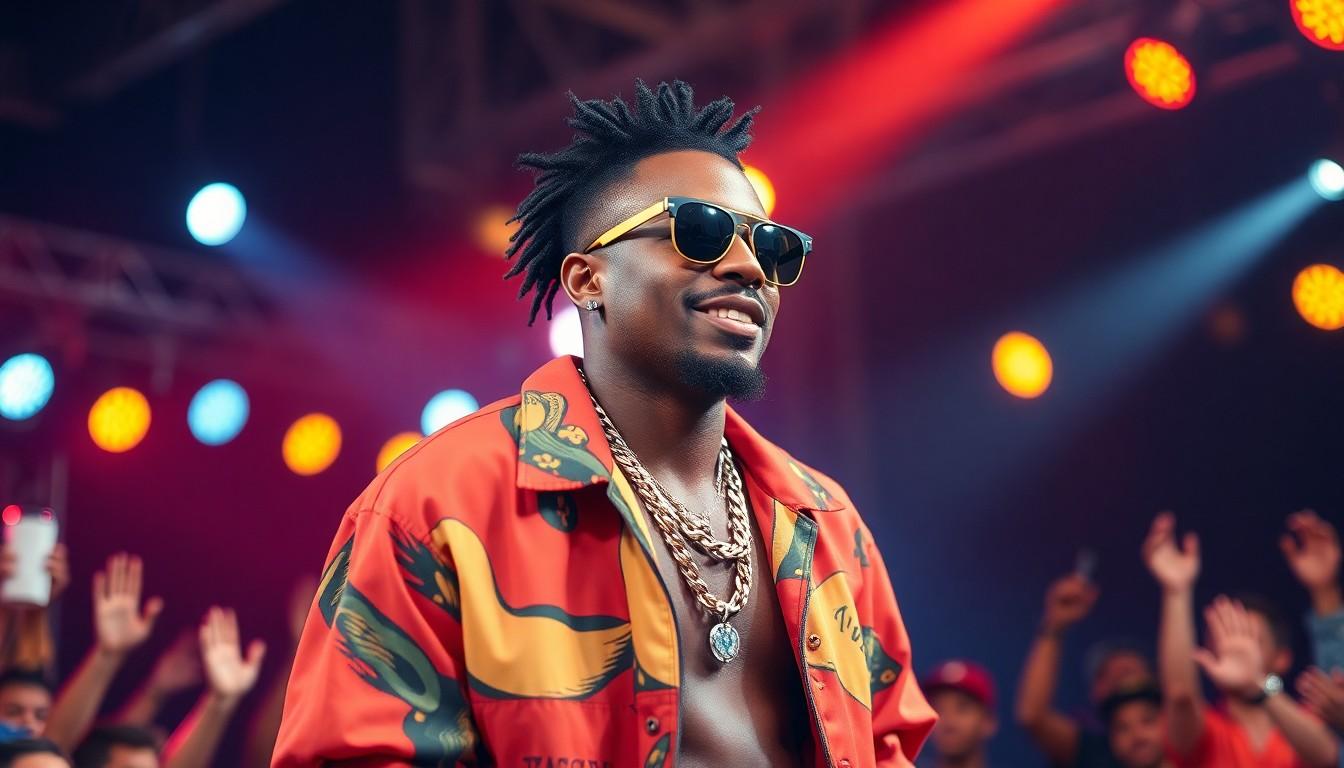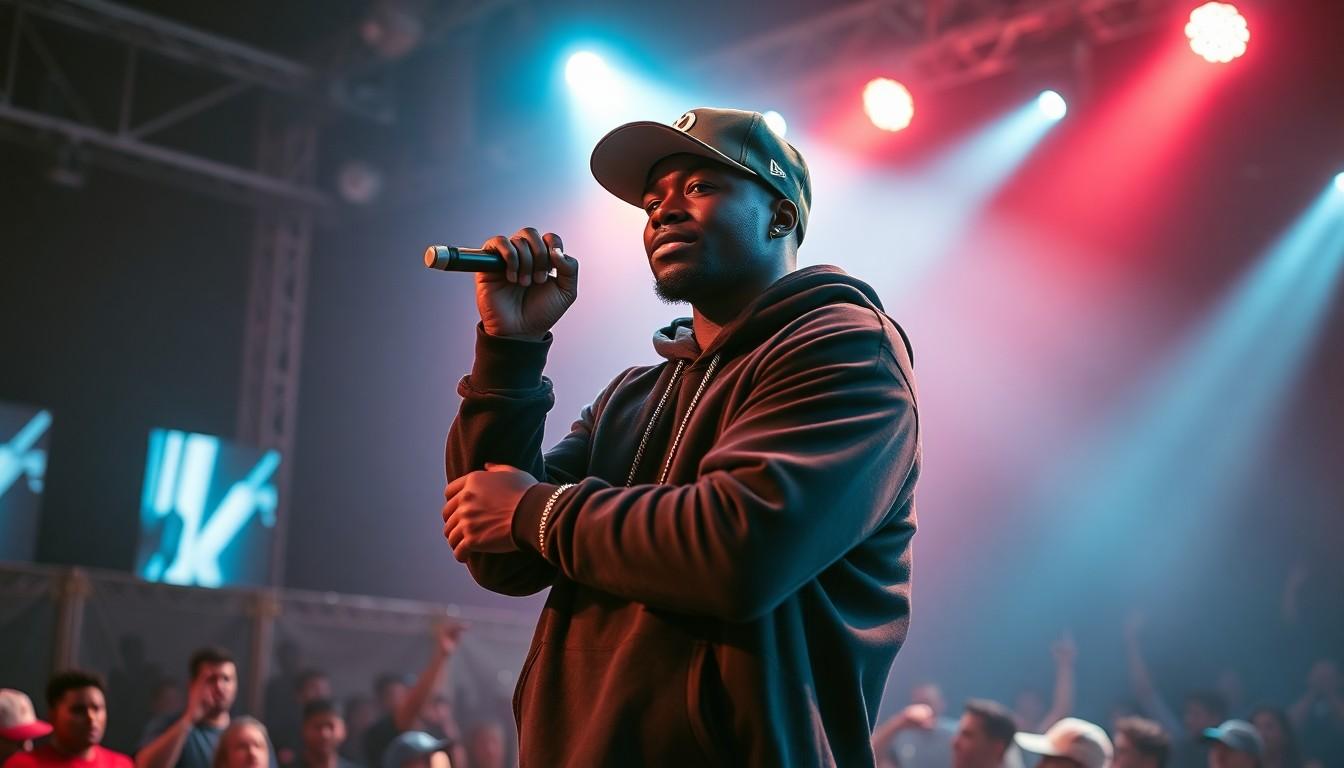
When we think of rappers, the image of lavish lifestyles and chart-topping hits often comes to mind. But how do these artists actually make their money? It’s a question that intrigues many, especially those looking to break into the music industry. Unlike traditional jobs, a rapper’s income isn’t tied to a fixed salary. Instead, they tap into diverse revenue streams to build their fortunes.
How Do Rappers Make Money?
From live performances to streaming platforms, rappers leverage multiple avenues to earn a living. Concerts can be particularly lucrative, with famous artists earning up to $200,000 per show, while newcomers might see just $100. Streaming services also play a crucial role, paying around $4 per 1,000 streams. Additionally, YouTube ad revenue can turn a rapper into a millionaire if they manage to capture a large audience. Understanding these income sources is key for any aspiring rapper aiming to navigate the industry’s financial landscape successfully.
Main Income Streams
Rappers employ diverse channels to monetize their talent, capitalizing on music trends and technology to boost earnings. Understanding these avenues is crucial for making a mark in the industry.
Album Sales and Streaming Royalties
Royalties from album sales play a pivotal role in a rapper’s income. These earnings include dividends from both physical (CDs and vinyl) and digital sales on platforms like iTunes. Each sale contributes a percentage of revenue negotiated via a record label or distribution deal. The rate of royalty varies with contract specifics, music format, and sales platform.
Streaming services such as Spotify and Apple Music change the revenue landscape. While they offer broad reach, the payout per stream is lower than physical and digital sales. Rappers need millions of streams to match traditional sales revenue, pushing them to create engaging content for sustained listener attention.
Live Performances and Tours
Touring and live performances present substantial earning opportunities. Revenues stem from ticket sales, VIP packages, and branded merchandise. Tours not only connect artists with fans but also serve as a promotional platform for new releases. Veteran artists may command higher fees per show, while emerging talents grow their audience and performance experience.
Show engagements can include festivals and private events that further the artist’s reach. This live exposure can enhance streaming numbers and album sales, creating a reciprocal relationship between digital platforms and performance circuits.
Merchandising
Merchandise sales add a unique revenue stream. Rappers utilize e-commerce platforms and social media to sell branded apparel and accessories. From T-shirts to hats, merchandise promotes personal branding and expands artist visibility beyond music.
Digital products like sample packs or instrumentals provide additional income. Offering exclusive content, artists can diversify their merchandise portfolio, catering to different audience interests. By emphasizing quality and creativity, they enhance fan loyalty and boost cross-platform sales.
Songwriting and Ghostwriting
Songwriting provides another income channel for me. Creating music for others diversifies revenue and enriches my industry experience. Successful songs credited in my name can result in ongoing royalties and partnerships.
Ghostwriting, albeit less publicized, enables earnings through non-credited contributions to other artists’ work. It requires exceptional writing talent, understanding industry trends, and adaptability to different music styles.
YouTube and Social Media Monetization
YouTube offers monetization through ad revenues, pivotal in a rapper’s income strategy. Channel views and ad clicks translate into money. Moreover, the Content ID system allows me to claim and monetize user content featuring my music, ensuring I earn from derivative works.
Social media platforms provide direct channels for monetization. Artists create engaging content to build a loyal fanbase, leading to brand partnerships and sponsored content deals. These collaborations, alongside Patreon-like subscription services, secure regular revenue while maintaining audience engagement.
Additional Income Opportunities

Rappers can generate income beyond traditional music-related activities. Exploring diverse opportunities provides sustainable financial growth and industry presence.
Sponsorships and Brand Partnerships
Sponsorships and Brand Partnerships attract significant income for successful rappers. High-profile artists can collaborate with major brands, resulting in lucrative deals that provide cash and promotional opportunities. For instance, partnering with clothing or electronics companies allows rappers to access new audiences and enhance their image. Advertisements and promotional materials may feature the artist, increasing both visibility and revenue. Emerging rappers often begin with smaller brands, gradually building credibility for larger sponsorship deals. Ensure genuine alignment with brand values to maintain authenticity and audience trust.
Licensing and Sync Deals
Licensing and Sync Deals offer another profitable avenue. Music used in films, television shows, commercials, or video games brings in synchronization royalties. These deals provide both upfront payments and ongoing royalties, making them attractive. Artists like Travis Scott and Kendrick Lamar have profited substantially from sync deals due to the wide exposure and financial gains involved. To maximize opportunities, build a strong catalog and work with publishing companies to promote music for licensing.
Teaching and Workshops
Teaching and Workshops present additional income while sharing knowledge with aspiring musicians. Experienced rappers conduct masterclasses, seminars, or individual lessons, offering insights into artistry and industry experience. These sessions allow for the transfer of critical techniques, music production skills, and business acumen. Participants gain valuable expertise while instructors strengthen their industry reputation. Hosting workshops at conferences or music festivals can lead to substantial earnings and expanded network connections.
Patreon and Crowdfunding
Patreon and Crowdfunding, such as Kickstarter or Indiegogo, provide platforms for fan-supported income. Fans contribute funds to support projects in return for exclusive content, merchandise, or early access to music. This model ensures creative control remains with the artist while securing financial backing. Artists like Amanda Palmer and De La Soul have successfully utilized crowdfunding, highlighting the power of a dedicated fanbase. Engage supporters with regular updates and personalized content to maintain involvement and sustained financial support.
Boosting Popularity and Visibility

Rappers looking to maximize their earnings need to focus on increasing their popularity and visibility. Establishing a unique presence simultaneously strengthens financial prospects.
Building a Personal Brand
Creating a unique personal brand defines a rapper’s identity and appeal. To develop this, I focus on identifying what sets me apart and consistently reflecting that uniqueness in my image, music, and public interactions. The consistency in branding creates strong recognition, essential for growth.
Utilizing social media profiles effectively offers control over the narrative and style presented. I regularly update profiles on platforms like Instagram, Twitter, and TikTok with posts showcasing my lifestyle, music projects, and creative process. Frequent interaction nurtures a loyal following, shaping perceptions.
Collaborating with influencers and industry figures can expand reach. By working with well-known artists or influencers aligned with my personal brand, I tap into existing audiences and gain credibility. Strategic partnerships earn me exposure and invite new fans.
Engaging with Fans Online
Interacting with fans regularly strengthens relationships and creates a dedicated community. I make it a priority to comment on posts, reply to messages, and encourage fan-generated content. Building rapport increases engagement rates and sustains interest in my music.
Hosting live streaming sessions and virtual events provide interactive experiences. Whether it’s live Q&As, virtual concerts, or behind-the-scenes glimpses, these activities allow fans an intimate connection. Regularly scheduled events maintain excitement and deepen loyalty.
Creating engaging multimedia content keeps the audience interested. I produce varied content like music videos, lyric breakdowns, and video blogs. High-quality, entertaining material attracts viewers, enhancing online visibility. Diversifying content aligns with different platform trends and preferences.
These strategies are essential in cementing a rapper’s popularity and visibility, directly impacting earning potential through increased audience size and influence.
Common Questions About Rapper Earnings

Understanding rapper earnings involves examining multiple revenue streams and different paths to financial success. Here, I’ll answer common questions about how rappers make money in various scenarios.
How Much Do Rappers Make Per Show or Performance?
Rappers can earn anywhere from $100 to over $200,000 per performance, depending on factors like fame and venue size. Emerging rappers might make about $100 for local gigs. Established artists often command between $1,000 to $5,000 per show as they build a following and perform at larger venues. Renowned rappers with large fanbases can earn hundreds of thousands of dollars—up to $200,000— for major events, festivals, or club appearances. Concerts are a critical revenue stream, with earnings influenced by ticket sales and potential VIP packages. Selling merchandise at live shows also adds substantial earnings, contributing to the overall revenue from each performance. These shows not only offer significant income but also help build a fanbase and increase visibility in the industry.
How Do New and Unsigned Rappers Make Money?
New and unsigned rappers use various strategies to earn money. Live performances often provide the initial income, with emerging artists securing gigs at local venues. These gigs can earn them around $100 per performance. Unsigned rappers can also benefit from streaming platforms; for instance, they receive approximately $4 for every 1,000 Spotify streams. Additionally, platforms like YouTube allow them to earn from ad revenues as they grow their audience. Many new rappers capitalize on social media platforms, endorsing products or services to generate income. Merchandise sales through online shops, such as Shopify, also contribute to their earnings by allowing them to sell branded apparel and digital products. Digital platforms like Fiverr or Upwork offer another avenue for income, where rappers can provide voiceover services or freelance production work. With the right strategies, even without a formal record deal, unsigned rappers can build a sustainable income stream.
Do Rappers Make Money Without Touring?
Rappers generate income without touring through various channels. Digital streaming forms a major income stream, where successful tracks yield royalties across platforms like Spotify and Apple Music. YouTube can be lucrative, with revenue from ads enriching artists who create engaging content. For example, rappers utilizing their social media presence often attract sponsorships and brand partnerships, translating their influence into financial gain. Merchandise sales, either directly or through platforms like Shopify, provide a steady income source by selling products with their branding. Rappers can also tap into sync deals, licensing tracks for TV shows and movies, providing both upfront payments and ongoing royalties. Online platforms like Patreon and crowdfunding let fans financially support artists in return for exclusive content. By diversifying their income streams, rappers can sustain themselves financially even without constant touring, allowing time to focus on creative projects.
Conclusion
Understanding how rappers make money reveals the complexity and diversity of income streams in the music industry. It’s clear that success isn’t just about talent but also about strategic financial planning and leveraging various opportunities. Rappers must be adaptable, embracing both traditional and modern revenue channels to maximize their earnings. By building a strong personal brand and engaging with fans, they can create a sustainable career that thrives beyond the music itself. Whether through performances, merchandise, or digital platforms, the potential for financial success is vast for those willing to explore all avenues.
Frequently Asked Questions
How do rappers make money from live performances?
Rappers earn money from live performances through ticket sales, VIP packages, and merchandise. Established artists can earn significant amounts per show, while newcomers may earn less. Live events provide a platform to connect with fans and boost overall income.
Can rappers earn from streaming platforms?
Yes, rappers generate income from streaming platforms through royalties. Although streaming requires a large volume to earn substantial revenue, it’s a vital income source, as millions of streams can translate into significant earnings over time.
Do merchandise sales significantly contribute to a rapper’s income?
Absolutely. Merchandise sales are a substantial income stream for rappers. Branded apparel and digital products not only generate revenue but also enhance fan loyalty, making merchandise a crucial aspect of a rapper’s financial strategy.
Is sponsorship crucial for a rapper’s revenue?
Yes, sponsorships and brand partnerships are vital income streams for successful rappers. They provide substantial financial backing, enabling artists to diversify their earnings beyond traditional music-related activities.
How much can new and unsigned rappers earn?
New and unsigned rappers can earn money through local gigs, streaming platforms, merchandise sales, and social media endorsements. Although initial earnings may be modest, these activities help build a foundation for future financial success.
Can rappers earn without touring?
Yes, rappers can generate income without touring through digital streaming, YouTube ad revenue, sponsorships, merchandise sales, sync deals, and crowdfunding platforms. These avenues provide alternative ways to maintain earnings remotely.
Why is building a personal brand important for rappers?
Building a personal brand reflects a rapper’s unique identity and is critical for maximizing earnings. A strong personal brand helps control the narrative, attract loyal fans, and engage new audiences, all of which contribute to long-term financial success.

Leave a Reply